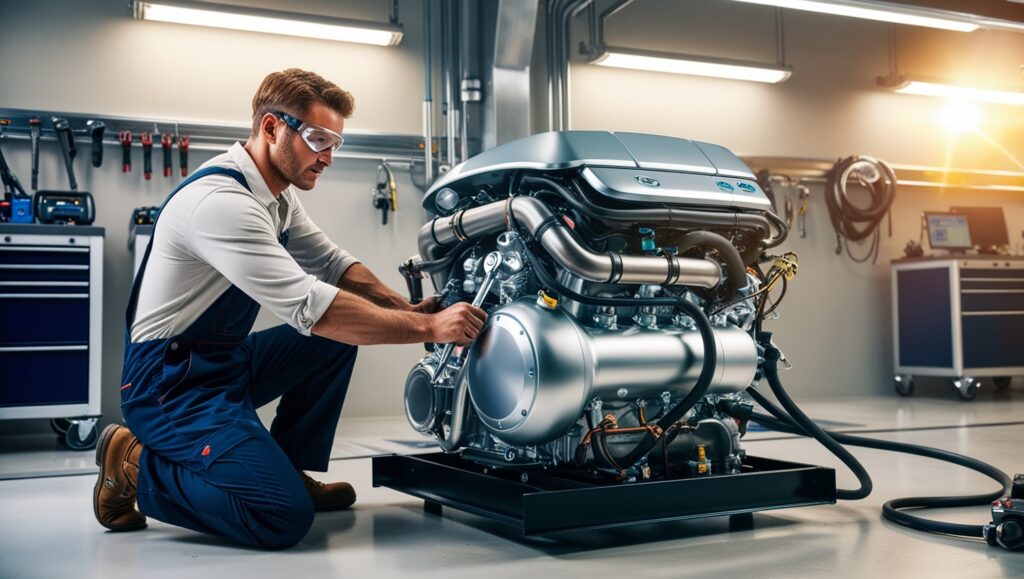
Electric vehicles (EVs) are all the rage in headlines, but not everyone is rushing to trade in their gas-powered cars. EVs certainly have some great perks: they’re quiet, clean, and give off major tech-vibes. But why, then, aren’t they taking over our highways? Let’s break down the hurdles, add some humor, and bring in stories from real-life EV owners.
1. The Charging Struggle: “Plug and Wait” is the New “Stop and Go”
Imagine this: you’re on a road trip with the family, and you pull up to a gas station. But instead of filling up in 5 minutes, you have to wait around for 45 minutes or longer while the car charges. Or worse, you’re in line behind other EVs, and everyone’s camping out, passing snacks, and eyeing the single charger in sight like it’s an oasis in a desert.
One of the main issues with EVs is the charging infrastructure—or, often, the lack of it. While companies like Tesla have invested in extensive networks of Superchargers, other brands aren’t as far along. And even with faster chargers, you’re still looking at longer stops than what you’d get with gasoline. Learn more about the Tesla Supercharger Network on Wikipedia.
Quick story: One EV owner shared that his “super spontaneous” friend suggested they take his new EV out on a weekend trip. Three hours later, they were still sitting at a highway rest stop, counting down the minutes as the car charged. Now they call that rest stop their “weekend getaway” spot.
Joke: Why do EV owners make terrible dinner guests? Because they take forever to leave after dessert.
2. Battery Life and the “Bricking” Issue: Avoid the EV Horror Story

Another concern with EVs is battery life. If you drive a gas-powered car, “running out” means a quick stop at the pump. But with an EV, if your battery fully discharges and is left empty, there’s a risk it could “brick”—a tech term for when something becomes completely unusable, like a brick. That’s a costly mistake that no one wants to experience. Here’s more on “bricking” and battery failure on Wikipedia.
EV batteries generally last between 10 and 20 years, but their performance depends heavily on driving conditions, climate, and charging patterns. Cold weather, for instance, can significantly slow charging times and even reduce the battery’s efficiency. For long-term battery life, experts recommend charging to around 80% rather than topping it off to 100%.
Quick story: One EV driver found his car had “bricked” after a long vacation where he’d forgotten to plug it in. After coming back to a very expensive repair bill, he now jokes that his EV isn’t just a car; it’s “another family member that needs constant attention.”
Pro Tip: Don’t let your EV battery drop to zero if you can help it. And always have a charging plan if you’re going out of town.

3. EV Tires: Not Just Your Ordinary Set of Wheels
Tires on electric cars wear out faster than those on traditional vehicles, often by up to 20% according to Michelin. EVs are heavier because of their batteries, which means more pressure on the tires, leading to quicker wear and tear. So if you thought EV ownership would mean fewer trips to the repair shop, those tires might make you think again.
EV tires are specially designed to reduce rolling resistance and noise, but they’re also more expensive than traditional tires. On average, EV tires can cost anywhere from $150 to $300 per tire, depending on the model. You can learn more about this at Priority Tire’s EV Tire Guide.
Joke: Why did the EV tire break up with the car? Because it just couldn’t keep up with the “wheel-y heavy” commitment.

4. The Hydrogen Alternative: The Next Big Thing?
While EVs are popular, hydrogen fuel cell vehicles are gaining attention as another sustainable option. Hydrogen cars don’t rely on charging stations—instead, they’re refueled with hydrogen gas, much like how we refuel with gasoline. They’re faster to refuel than EVs and have a longer range, which appeals to drivers who want the flexibility of a traditional vehicle. The downside? There are far fewer hydrogen stations available, so infrastructure remains a major challenge. Read more about hydrogen vehicles on Wikipedia.
Quick story: One hydrogen car driver shared that she had to plan her entire commute around one or two specific fuel stations that actually carry hydrogen gas. “It’s kind of like being in a long-distance relationship,” she joked. “The fuel stations are there, but you really have to go out of your way to see them.”
5. EVs and Market Trends: Is the Hype Fading?
Despite all the attention, recent reports suggest that EV sales may be slowing down. Some consumers still hesitate to adopt EVs due to infrastructure concerns, battery life worries, and the overall cost. According to Goldman Sachs, EV sales are expected to rise 21% year-over-year in 2024, but they warn that growth may plateau if these issues aren’t resolved. Check out Goldman Sachs’ latest insights on EV market trends.
Questions and Answers: Your Top EV Concerns, Answered
Q: Do EVs cost more to maintain?
A: While EVs generally have fewer parts to service, the cost of replacing key components, like the battery or specialized tires, can be high. Regular EV maintenance may be cheaper than for gas cars, but when repairs are needed, they tend to be costly.
Q: How do EVs handle in cold weather?
A: EVs can lose battery efficiency in cold climates, leading to slower charging times and reduced range. Some models, like the Tesla Model S, are equipped with thermal management systems to help mitigate these effects. Read more on Tesla’s battery technology.
Q: Are there tax incentives for buying an EV?
A: Yes! Many governments offer tax incentives or rebates for EV purchases, though these vary by location. In the U.S., certain EV models qualify for up to $7,500 in tax credits. Be sure to check with your local government for the most up-to-date information.
Q: Will gas cars go away entirely?
A: It’s unlikely gas cars will disappear soon, but they’ll likely become less common. Many manufacturers have already pledged to focus on EV production in the coming years, and with increasing environmental regulations, traditional gas-powered cars could become more of a niche market.
Q: How much does it cost to replace an EV battery?
A: Replacement costs vary by model, but a new EV battery can run between $5,000 and $15,000. This is a big consideration for potential buyers, especially if the battery nears the end of its lifespan.
Final Thoughts: Are EVs Right for You?
Electric vehicles may not be perfect, but they’re evolving quickly. For many drivers, the environmental benefits, tech features, and cost savings make EVs a worthwhile choice. But it’s essential to consider the trade-offs, especially if you’re looking for a hassle-free driving experience. Will EVs fully replace gas cars? Maybe not overnight—but they’re a growing part of the future of transportation.
So, whether you’re a “plug and play” kind of person or prefer the familiar rumble of an engine, there’s no one-size-fits-all answer. EVs are just one option in an increasingly diverse automotive landscape, and they’re here to stay—quirks, jokes, and all.

Some more expert produced information:
1. Are EV Owners Happy?
- Studies reveal over 80% of EV owners report high satisfaction, with top reasons including:
- Quiet, smooth rides – goodbye engine noise!
- Lower fuel and maintenance costs – who doesn’t love saving money?
- Yet, some frustrations linger:
- 20% of new EV owners experience “range anxiety” – will I make it home before my battery runs out?
- 25% express concerns over charging infrastructure, especially for long trips.
- Fun fact: Tesla consistently tops satisfaction surveys; it’s not just the car – it’s the Elon-effect!
2. Why Do Tesla Tires Wear Out So Fast?
- Why? Simple physics! EVs are heavier (batteries weigh more than gas tanks), and Tesla’s instant torque puts extra stress on tires.
- The result? Tesla tires can wear out 20% faster than regular car tires.
- EVs often use specialized EV tires with:
- Reinforced sidewalls for durability
- Low rolling resistance to maximize range
- Noise reduction technology – silent ride, anyone?
3. Can EVs Use Regular Tires?
- Yes… but at a cost:
- Regular tires aren’t designed for EV weight and performance demands.
- Specialized EV tires:
- Improve range (by up to 10-15%)
- Offer durability for higher EV weights
- EV tires save you from frequent replacements, ultimately helping you save!
4. Why Can’t I Unplug My EV?
- Safety first! EVs come with locking connectors to:
- Prevent accidental disconnections
- Protect users during high-voltage charging
- Pro tip: If you can’t unplug, double-check that charging is complete or try unlocking the car. If all else fails, reboot the system – a digital “unplug and replug.”
5. Why Do EV Chargers Fail So Often?
- Common reasons include:
- Heavy use and wear – some chargers are used by 20-50 cars per day!
- Environmental exposure to weather
- Maintenance lags as networks expand rapidly.
- EV charging infrastructure is growing fast, but reliability improvements are a top priority. Frequent travelers often bring a list of favorite charging spots – like knowing the best diners on a road trip!
6. What Drains an Electric Car Battery?
- Major battery drains include:
- High speeds (over 60 mph can reduce range by 10-20%)
- Cold weather (battery range can drop by up to 30% in freezing conditions)
- HVAC usage, especially heating
- Maximizing range tip: Stick to moderate speeds, and pre-condition the car’s temperature while still charging.
7. Why Are Electric Cars Not the Future?
- Critics argue that:
- Battery raw materials (like lithium) are limited and mining has environmental downsides.
- Infrastructure gaps – particularly for long-distance travel.
- EVs may be great for cities, but alternatives like hydrogen could be more practical for heavy industry and longer journeys.
8. Why Are Hydrogen Cars Not the Future?
- Infrastructure: There are currently fewer than 60 hydrogen fueling stations in the entire U.S.!
- Energy use: Producing hydrogen can be 60-70% less efficient than using renewable energy directly.
- Hydrogen technology still shows promise, especially for sectors like shipping and trucking – think of it as the “EV for the heavyweights.”
9. Will Gas Cars Go Away?
- Gas cars are sticking around for a while:
- By 2035, many countries aim to ban new ICE sales, but older gas cars will still be on the roads.
- Rural and remote regions may continue to rely on gas for the foreseeable future.
10. What Not to Do With an Electric Car?
- Avoid these rookie mistakes:
- Fully depleting the battery – this can reduce battery life.
- Excessive fast charging – rapid charging often can heat up and degrade the battery.
- Ignoring software updates – these updates can improve range and efficiency!
11. What is the Biggest Weakness of the Electric Car?
- It’s the charging time and battery degradation:
- Even fast chargers can take 30-60 minutes to reach 80%.
- Batteries degrade over time – after 150,000 miles, most EVs still retain about 80-90% of their capacity.
12. Are EVs Dead in Car Magazines?
- Quite the opposite! EVs are some of the hottest topics. Publications like MotorTrend and Car and Driver dedicate entire sections to EV tech and reviews. Even the classic Road & Track has been bitten by the EV bug!
13. What Percentage of EV Drivers Go Back to ICE?
- Around 20% of first-time EV owners switch back to gas due to:
- Limited charging availability in rural areas.
- Range anxiety for long-distance travel.
- But as charging infrastructure improves, this number is expected to drop significantly.
14. What is the Downfall of Owning an Electric Car?
- Primary downsides include:
- Range limitations – not ideal for spontaneous long trips.
- High upfront costs, though tax incentives help.
- Battery replacements can be costly, but with warranties typically covering 8-10 years, most owners aren’t worried.
15. Why Are EVs Not Selling?
- Main reasons:
- Upfront cost: EVs can be 20-30% more expensive than comparable gas cars.
- Charging availability: Urban areas are better served, but rural areas still lag behind.
- Despite this, EV sales are steadily rising, with 40-50% YOY growth in some regions.
16. What is the Best Selling EV in the World?
- Tesla Model Y leads globally, with over 500,000 units sold annually, thanks to its strong range, tech features, and performance.
17. Who is Not Making Electric Cars Anymore?
- Some brands are slower to fully transition, with manufacturers like Ferrari focusing on hybrid models instead of pure EVs. But even Ferrari has EV plans – can you imagine a silent, fully-electric Ferrari?
18. Will Electric Cars Last Longer than Gas Cars?
- Many experts believe EVs will outlast ICE vehicles due to fewer moving parts. Most EV batteries are designed to last 150,000-300,000 miles before significant degradation occurs.
19. Why Do EV Tires Wear Out So Fast?
- EVs carry extra battery weight, causing tires to wear about 20% faster than on lighter gas cars. Using EV-specific tires can help manage wear and extend life.
20. Do Electric Cars Need Maintenance?
- EVs require 30-40% less maintenance than ICE cars, skipping oil changes and relying on fewer mechanical parts. Major maintenance points include:
- Tire rotation
- Brake checks (EVs use regenerative braking, so brake pads often last longer)
21. What is the Average Maintenance Cost for an Electric Car?
- Typically around $300-$400 annually, EVs are cheaper to maintain overall. However, unexpected repairs can occur, like battery checks and electronics.
22. What Drains an Electric Car Battery the Most?
- Biggest drains:
- High speeds and acceleration
- Cold weather (reduces range by 30% or more)
- Climate control usage
- To preserve range, many drivers preheat or cool their EVs while plugged in.
23. What Happens to Electric Car Batteries in a Crash?
- EVs have extra protections for batteries. Major manufacturers design batteries to:
- Resist punctures
- Use sensors to disable power in severe impacts.
- However, damaged EV batteries must be handled carefully to prevent fire risks.
24. How Much Does it Cost to Replace an EV Battery?
- Replacement costs vary from $5,000 to $15,000, but most manufacturers cover replacements for 8-10 years.
25. Can You Put Regular Tires on an EV?
- Possible, but not recommended! Regular tires won’t offer the same range and durability. EV tires are reinforced for load and efficiency.
26. Do EV Cars Take Special Tires?
- Yes. Specialized EV tires offer:
- Reduced road noise
- Durability under extra weight
- Low rolling resistance for extended range
27. Why Are Tesla Tires Special?
- Tesla uses tires with noise-reducing foam and compounds optimized for electric torque and range. These tires handle the specific demands of Tesla’s weight and performance.
28. Why Are EVs Not Selling?
- High costs, range anxiety, and infrastructure gaps still limit EV adoption, but incentives and tech advancements are gradually shifting the market.


